神余隆博元国連大使が議長を務めるグローバルガバナンス委員会小委員会の国連改革に関する第2回会合には元文部科学大臣中川正春氏、国連平和活動に関する首相特別補佐官をなされた後に文部科学大臣を務めた柴山昌彦氏と左藤章 前内閣府副大臣・元防衛副大臣の3人の国会議員が参加した。この会合では、長谷川祐弘座長のほかに元国連スポークスマンで現在は上智大学の教授をなされている植木安弘氏、そして国連改革問題の国際的専門家のOP Jindal Global Law School、Jindal Global Law SchoolのVesselin POPOVSKI教授がこの意見交換会に参加しました。
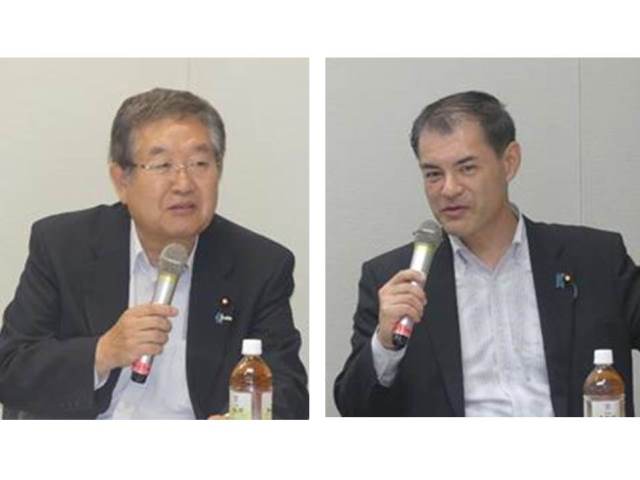
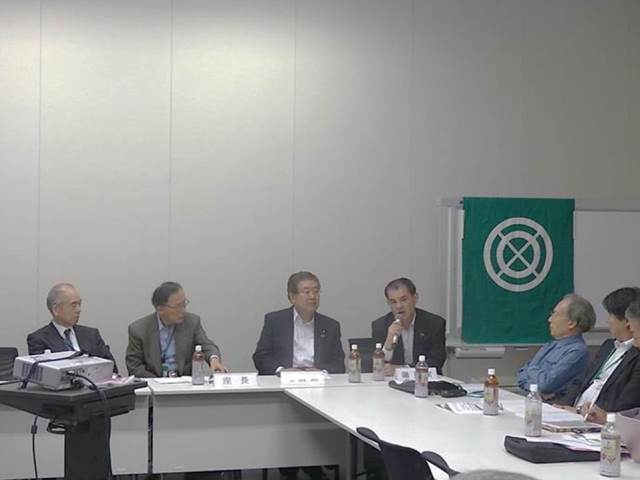
The opening remarks were made by Mr. Masakuni TANIMOTO, Secretary-General of the Japan Commission on Global Governance and Professor Takahiro SHINYO, Chair of the Sub-Committee on UN Reform. Then, presentations were made by three experts on UN reform issues, i.e. Professor Sukehiro HASEGAWA, former Special Representative of the Secretary-General of the United Nations, Professor Yasuhiro UEKI of International Relations at Sophia University, former United Nations Spokesman, and Dr. Vesselin Popovski, Professor and Vice Dean, Jindal Global Law School, O.P. Jindal Global University, Haryana, India. The participants were provided with “One Page Summary Note on UN Reforms” in English by Professor Popovski and a paper entitled “UN Reform Proposals by UN Secretary-General António Guterres: Meaning and Challenges” written by Professor Sukehiro Hasegawa.
【Opening Remarks】
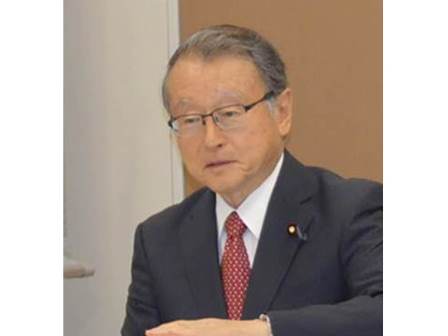
At the opening of this session, Honorable Masaharu NAKAGAWA, a senior member of the House of Representatives of the Japanese Diet and the former Minister of Education, Culture, Sports, Science and Technology who is currently the Secretary-General of the Parliamentary Committee for World Federalist Movement greeted the participants and mentioned that UN reforms would play a crucial role in determining the global peace orientation for the future and the UN is presently making impacts on world views on peace, and thus it is important that this working group hold thorough discussions to identify future agenda and issues to be explored and tackled in connection with UN reforms. Following Mr. Nakagawa`s remarks, Secretary-General Tanimoto elaborated the agenda and issues identified in this working group (among other working groups which included disarmament, environment, parliamentarian diplomacy, rule of law, etc. that will be shared with the Japanese Diet Members, for possible incorporation into the government-level policy-making. Thereafter, the participants in this session briefly exchanged their professional background, as well as their interests and reasons for joining this session.
【Agenda Setting by Professor SHINYO】
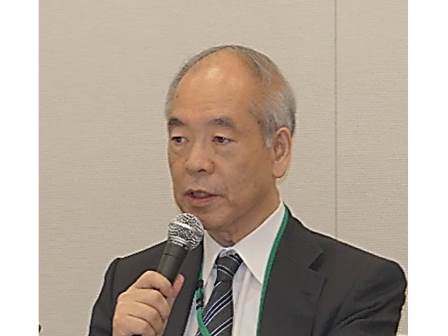
As the Chairman of the U.N. Reforms Working Group for Japan Commission on Global Governance, Professor Takahiro Shinyo, Former Ambassador and Deputy Permanent Representative of Japan to the United Nations in New York, provided his introductory remarks with reference to some of the points discussed during the first session of this working group held on July 23, 2019. He noted specifically: (1) UN reforms need to be contextualized in the light of how certain organization, for example through re-evaluation of the functions and the roles of the Department of Economic and Social Affairs, (2) enhanced civic engagement should be implemented and, such as the Civic Counsel should be established in the premise of UN; and (3) UN reforms need to address more pressing and emerging issues of today, such as refugee and other humanitarian crises. Professor Shinyo then explained that the objective for this second session is to consider UN reforms with an emphasis on the theory and the actual practice of the UN system, mainly based on proposals and comments to be received in the order of Professor Hasegawa, Professor Ueki, the participants who prepared their opinions and Professor Popovski.
Session I
1. Presentation by Professor Sukehiro HASEGAWA
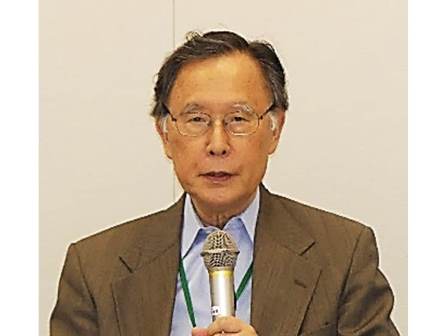
In his presentation, Professor Hasegawa raised three main areas that need to be tackled in connection with UN reforms: (1) Internal realignment for improved delivery of mandate as one unified UN system; (2) Consolidation of the UN Secretary General’s control over the operational activities through the Resident Coordinator-ship and Humanitarian Assistance Coordinator-ship; and (3) More fundamental changes that are needed in the UN structure to drive global governance.
First, Professor Hasegawa explained that, Mr. António Guterres、upon his appointment as the UN Secretary-General in 2017, took his initiative for UN reforms which would more effectively and comprehensively address the following three main areas that had been previously separately tackled within the UN, namely, (1) Peace and Security, (2) Development and Human Affairs, and (3) Management and Administration of the UN. The primary objective of the Secretary-General`s reform was to enable the prevention of disputes and to deal more efficiently and effectively conflicts when they occur. He also aimed at making the management of the UN organizations more “nimble” and simpler in a way to minimize bureaucratic practices. His focus was on the actual delivery, namely, “deliver as one” as he previously reformed the UNHCR as its High Commissioner in a manner to delegate more authorities to the field staff, that enabled the field operations to procure goods and services more quickly and utilize the resources more effectively.
Professor Hasegawa then explained how Secretary-General Guterres had implemented his UN reforms measures. The so-called silos (organizational compartments) had been removed in the Peace and Security area as the two principal departments, i.e. the Department of Political Affairs and Peacebuilding Support Operations had been brought to work together at least theoretically. Four chiefs had been appointed at the Assistant Secretary-General`s level to look after operational activities in four geographical areas, Africa, Asia, Europe and Latin America. As for the Resident Coordinator system, whereas UNDP had previously appointed the Resident Coordinators, their management has been placed in the hands of the Deputy- Secretary-General who started appointing in January 2019 the Resident Coordinators who would coordinate UNDP and other UN funds and agencies. The integrated mission structure has been a major change as compared to the organizational arrangements that had existed under previous Secretary-General Ban Ki-Moon who did not try to interfer UNDP, UNICEF and other funds as well as specialized agencies and left them totally as autonomous. Secretary-General Guterres’ approach aimed at integrating all field activities of UN organizations under the coordinating authority of the Resident Coordinators. Professor Hasegawa added that the challenge faced by the UN system was how to make this integrated approach work.
Secretary-General Guterres’s proposal, Professor Hasegawa noted, aimed at making UN peacekeeping and peacebuilding missions more efficient and cost-effective. Considering that there were UN peacekeeping missions depend on funds allocated by the Security Council, while development and humanitarian activities were funded by voluntary contributions, at the field level, DSRSG played a critically important role as he also served as the Resident and Humanitarian Coordinator under the new mission structure. Professor Hasegawa stressed that this was a major improvement. He recalled. from his experience in Rwanda in 1995-96, UN agencies were separate and independent from SRSG. He thought that this new system would allow more effective implementation of the principle of “deliver as one,” meaning one program, one leader and team, one budgetary framework, one office as the Resident Coordinator’s budget coordination and allocation role should become more significant, as the donor countries are more increasingly giving ODA resources “earmarked”, i.e. more than 50% of ODA is now ear-marked and that the UN Development Assistance Framework (UNDAF) will need to enhance its capacity to more effectively allocate and coordinate aid resources.
Professor Hasegawa at the same time pointed out the challenges faced by the UN system in strengthening its relevance as an arm of effective global governance for three reasons. First, SG António Guterres` UN Reform is limited to improving its efficiency and effectiveness through the realignment of the functions of its organizational units and no structural changes and additionality were envisaged. Second, his reform package did not envisage any structural changes in key organs of the UN system such as the Security Council and the General Assembly. Thirdly, there was a need to bring back major powers to the United Nations for addressing pressing global crises. For this purpose, Professor Hasegawa called upon the transformation of the Group of G20 as the reformed Security Council. It would give legitimacy to the G20 and make the Security Council reflect the power that reside in the G20 countries which controlled more than three-fourth of global goods and services as well as military power. He suggested that the Security Council should also consist of not only nation states but also regional organizations such as the European Union, African Union and ASEAN.
2. Presentation by Professor Yasuhiro UEKI
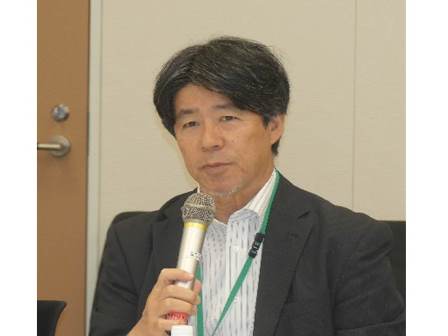
In his presentation, Professor Ueki analyzed the important trends and circumstances of different stages that led to the development and transformation of various UN organs, including the Secretary-General, the Security Council, the General Assembly, ECOSOC and the Secretariat.
Professor Ueki identified that UN reforms are contextualized in much wider efforts, not only through the UN entities, but also based on the UN’s organizational trait of having intergovernmental bodies with a common secretariat. Especially, when security governance was challenged at the end of the Cold war and thereafter, although the Security Council remained as the main decision-making body within the UN, additional bodies were established, mainly because many of the intergovernmental institutions were concerned with various issues beyond the traditional interest of peace and security. The Security Council became the organization responsible for the HIV AIDS issues and expanded its authority into the public health filed.
Professor Ueki further explained that the reforms led to the General Assembly and other bodies to have gained more power. In 2016, when the successor to Secretary-General Ban Ki-Moon was being elected, the General Assembly organized public meetings and public interviews for the candidates for Secretary-General; this was an unpreceded practice as compared to the normal procedure where the General Assembly would appoint the Secretary-General with the sole advice of the Security Council.
By illustrating the above situation as an example for the General Assembly’s strengthening of its position, Professor Ueki further expressed that the civil society should have a role to play in the appointment process of the UN Secretary-General through the representation by Member States. Professor Ueki argued that, as a part of UN reforms, a more comprehensive voting mechanism within the General Assembly should be instituted.
Professor Ueki explained that ECOSOC has engaged in a wide-range reforms. As a result, ECOSOC is different today than it was 10 years ago and provides an excellent example of how an UN body can change over time. The ECOSO became more efficient in a manner that consolidated annual sessions for high level meetings on functional areas held in New York (rather than both New York and Geneva, previously) and more operational with the adoption of SDGs, as it became the primary coordinating body for SDGs. Professor Ueki perceives that the General Assembly with 135 members can also be tasked with the issues of SDGs as the UN driving force and more leveraged with SDGs, because the General Assembly has a larger representation of members than ECOSOC, that holds 54 members.
Professor Ueki raised secretariat reforms as the UN achievement. In fact, every Secretary-General of the UN has made some reform efforts, mainly including the reform of non-intergovernmental bodies, since, as the secretariat, he is empowered to do so. For example, the former Secretary-General Kofi Anan examined (as continuation from his predecessor, Secretary-General Boutros-Ghali’s “Agenda for Peace”) each phase of conflicts, including prevention, mediation, peacekeeping and peacebuilding, Whereas Secretary-General Boutros-Ghali concentrated powers in his hands. Secretary-General Anan established four executive committees (Development, Peace & Security, Humanitarian and Economic and Social Affairs) that considered elaborated policies and escalated to the Secretary-General for decision-making. Further, Secretary-General Ban Ki-moon followed Secretary-General Anan’s approach, and he established policy committees that would recommend for policy decisions. The present Secretary-General, António Guterres, created standing principle groups and applied an integrated approach of the cabinet system, under which all principal members join and discuss issues of common concern.
With reference to the model of UNHCR’s delegation of authority and decision-making process to the local level, Professor Ueki linked a question of how this system will effectively work in terms of finance, recruitment and the delivery of projects, with a need to keep monitoring the transitions and the success of the Resident Coordinator system presently implemented.
In conclusion, Professor Ueki provided his perspectives based on his experience as the UN spokesmen in Pakistan and Zimbabwe and commented as follows: the idea of the Resident Coordinator-ship is good, but the actual effectiveness for his or her overall functions, especially considering that these functions are designed by the Secretary General, remains to be seen; and the success of such Resident Coordinator-ship would primarily depend on the actual ability of the RC, and how he or she could reconcile different interests in terms of the funding issues within UNDAF.
Questions and Comments from the Participants
Yoshinobu YONEKAWA
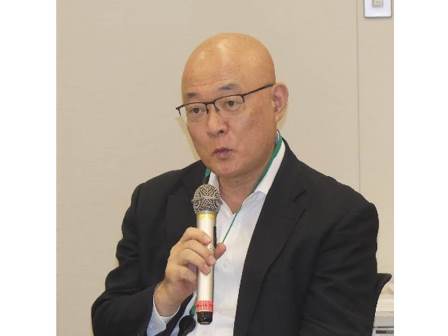
Mr. Yonekawa referred to Prof. Hasegawa`s presentation and noted that the reform program of the Secretary-General is geared to promote “integration” of the whole United Nations systems organizations. On the other hand, financial aspects of his reform program are open to question particularly in the context of the issues of development since the reform program is not equipped with provisions for providing sufficient funds to sustain the activities of the Resident Coordinators, which are to be discussed below.
In the history of the United Nations development systems, the fundamental reform of the UNDP was initiated in 1970 based on a report prepared by Sir Robert Jackson. Such a UNDP reform led to the adoption of the frameworks of the “IPF (Indicative Planning Figure)”, which was to indicate the amount of the UNDP funds to be allocated to each recipient country during a several-year program period. Another machinery introduced for the UNDP reform was the “country program”, which was prepared for each recipient country within the country’s IPF. Development projects were formulated in response to priority fields as identified in a country program, and the Specialized Agencies of the United Nations and other relevant international organizations came to participate in these UNDP-funded projects in their own specialized fields. This scheme was vigorously carried out and the “integration” of the United Nations development organizations was thus promoted for many succeeding years.
Such a UNDP approach was ensured by the following three factors. First, the world-wide networks of the Resident Coordinators were firmly established. Second, the Resident Coordinators were vested with their country-level authority to control the allocation of the UNDP funds to projects while the frameworks of IPF and country programs worked to secure the increase of the amount of voluntary contributions from donor countries to the UNDP. Third, the UNDP enjoyed highly qualified and motivated staff members to support their institutions.
Such frameworks later shifted towards the national execution schemes in response to the increasingly powerful voice from recipient countries. Those international organizations who used to participate in the UNDP programs as its executing agencies lost their opportunities to participate in the UNDP-funded projects and came to concentrate inevitably on their own development programs and projects. This is a brief illustration of the causes for the presently prevailing features of the “disintegrated” United Nations development systems, which the Secretary-General decided to change.
Among the above three factors for the success of the UNDP reforms, only the networks of the Resident Coordinators were transferred to the control of the Secretary-General according to his reform program, and the Resident Coordinators do not seem to be provided with access to sufficient funds under their own control. It looks unrealistic to expect that a highly capable Resident Coordinator would be able to lead the country-level development activities which involve various international organizations unless he has enough funds in his own hands and is able to spend them according to his own program priorities. In other words, the innovative creation of new financial basis under the already started reform program of the Secretary-General is required to effectively activate and sustain the Resident Coordinators’ networks, which are the invaluable legacy of the UNDP systems. How does Prof. Hasegawa view this subject?
Sumihiro KUYAMA
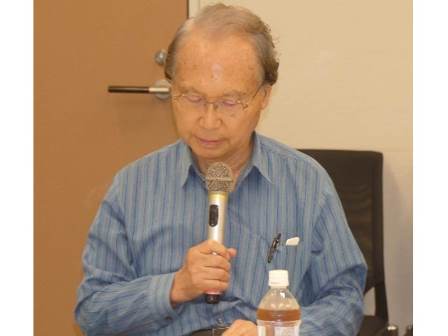
Concerning the UN reform proposal by SG Guterres as presented by Prof. Hasegawa, Mr. Sumihiro KUYAMA found that one big issue arising from the “repositioning of the UN development system” symbolized in the relocation of UN RC under the Deputy SG is the question of financing. He wondered if we can learn from the experiences of the IPF system (linked with Country Programming system) which, he believed, worked very well in the past, noting that he was involved in the building process of the IPF system.
Ken INOUE
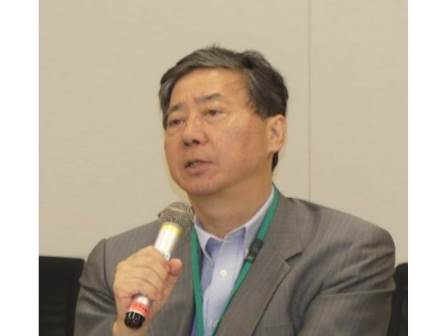
Mr. Inoue noted that with a view to consider the UN reform toward the 100th anniversary of the establishment of the United Nations, we should start reviewing the original purposes of the UN and present challenges to achieve them. The Charter of the UN states that Peace & Security, Development, and Human Rights are purposes to establish the UN. However, the UN is still facing huge challenges to achieve these purposes. Although the World War III has not broken out, endless regional conflicts have been prevailing in the world. Now, humanitarian assistance to refugees and IDPs and PKO are main works of the UN. Although economic development made some progress, economic gap has widened and global environment has been destroyed. Regarding human rights, despite establishment of Human Rights Council, its power is very limited and there are many authoritarian governments in the world. People in the world want to live safe, prosperous and free life, but conflicts never end, economic gap increases, global environment deteriorates, and human rights are violated. What should the UN do? We should go back to the original idea of the UN. The UN was established by “We, the people of the United Nations”, but in reality “We, the government of the United Nations” has run the UN and many of the governments do not represent voices of various peoples. In order to get back voices of the peoples in the world, we should create Peoples Council (Citizens Council) which are represented by peoples/ citizens across the borders, in addition to General Assembly and Security Council which are represented by governments. Peoples (Citizens) Council are composed of representatives of civil society organizations and associations of private firms in various fields. They are not elected based on their nationalities, although geographical and gender balances are considered. The Council does not have enforcement power but aims at creating common global norms and standards based on high moral. The Council members are composed of about 30 different categories such as women’s groups, youth groups, disabled persons groups, minority groups, scientists groups, academic groups, media associations, unions associations, employers associations, etc. Any member does not have veto and decisions are made by majority. Each category group can send a different representative to the Council but categories themselves and the total number of the membership will be reviewed regularly. Peoples (Citizens) Council is the new UN organ representing various non-governmental organizations in the world, and influence governments through promotion of civil movements to pursue international peace and security, sustainable development and democratic governance to protect democracy and human rights.
Responses by Presenters
Professor Hasegawa
Concerning Mr. Yonekawa`s view that the change may be seen to have resulted in unintended consequences as India wanted to use UNDP resources for acquisition of high technology to enable rocket launching while what India needed was improvements in health and education, Professor Hasegawa recognized it as a historical change in the ownership of managing aid resources. He then then mentioned that S-G Guterres` move to region and area-based approach is resulting in more ownership by African countries to maintain peace and security in the continent by themselves. Japan is supporting this move by providing technical support through ARDEC to strengthen African capacity to deploy their peacekeeping personnel. It is a desirable approach as Japan can support Africans more by providing technical know-how in troop deployment than the actual engagement of Japanese self-defense forces personnel in peacekeeping and building activities in precarious conditions in conflict prone African countries. Professor Hasegawa then elaborated his views on the efficacy of resources utilization. As rightly pointed out by Mr. Kuyama, the Jackson Report changed the modality of delivery or flow of UNDP aid resources from UN agencies such as WHO to the recipient countries such as India. It meant that Jackson gave authority or power to recipient countries to decide how to spend UNDP funds.
Professor Yasuhiro Ueki
Inoue asked why the UN not able to address human rights. Human Rights Council organizes three sessions a year. Special Rapporteur. Universal periodic reviews. US withdrew from the Council but their human rights conditions are reviewed.
Session II
3. Presentation by Professor Vesselin Popovski
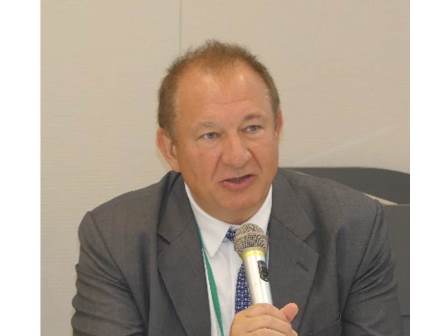
The final presentation in the second meeting of the Japan Commission on Global Governance was delivered by Dr. Vesselin Popovski – a former Bulgarian diplomat, senior legal expert for the EU, senior academic officer at the United Nations University, Tokyo and now professor and Vice Dean of Jindal Global Law School, India. Perhaps this multi-faceted background was a contributing factor leading up to the thought-provoking and concrete ideas he presented for the reform of the United Nations. Dr. Popovski began his presentation by acknowledging that his proposals were far from the proposals mostly discussed so far – they were far from modest. His propositions reflected an aspirational approach – that which is probably not going to happen. However, with his sound reasoning and explanation, his proposals did seem to reflect what should ideally happen, if the United Nations wishes to successfully navigate through its current crisis of legitimacy as a world security and governance system.
Before addressing the possibilities of reforms, Dr. Popovski reminded the committee of the provisions of article 109 of the Charter of the United Nations. By doing so, he proved that the static nature of the Charter was not the intention of its drafters, rather a review – a decade after its adoption – was their original plan. Thus, the calls for reform of the United Nations are not just contemporary, but historic, and go as far back as its conception in 1945. He then moved on to explain his four major proposals – establishment of a world parliament, and reform of the General Assembly (GA), Security Council (SC), and Peacebuilding Commission.
The first two proposals were intertwined – while the GA is the primary deliberative council of the United Nations, it still shows democratic and legitimacy deficits – it represents states and not people. To this end, Mr. Popovski proposed the establishment of a world parliamentary network which would consist of elected representatives from national and regional legislative bodies, and could also include representatives of stateless persons such as refugees, nomadic and indigenous people, etc. This is in itself is a historical proposal going as far back as the late 18th century and has contemporary equivalents such as the Pan-African Parliament and the European Parliament. Furthermore, he did not deny the pivotal role of the GA and suggested five measures for its independent revitalization. These measures were suggested as supporting mechanisms for the GA in the form of an office of ethical assessments, a scientific advisory board, regular or occasional high-level panels, constant thematic panels and a chamber of the civil society. While some of these mechanisms have begun to develop in the GA, Dr. Popovski advocated their robust and full implementation, in conjunction with all the other mechanisms he suggested, for maximized impact.
His third and fourth proposals addressed the globally emerging concerns with the composition of the SC. The current system of the P5 having veto powers has reduced the SC from the most powerful organ of global governance, to a mere geopolitical safety net. With regards to this he put forth an 8+8+8 model for the SC, with 8 permanent seats (AU, EU, USA, Japan, India, Brazil, China & Russia), 8 semi-permanent seats serving 8 renewable years, and 8 non-permanent seats. This model would be beneficial to all – large, medium and small countries. All nations, as compared to the status quo or any other proposed model, would have an increased representation and a chance at their own individual seat within the SC. It would also further the aims of the AU and the EU in consolidating into a common foreign and peace policy. Furthermore, this model does not impose the burden of permanently bestowing powers on a selected few African nations for example and provides scope for adaptation according to the constantly changing global geo-political context. However, not limiting his proposals to only compositional changes within the SC, Dr. Popovski also put forth suggestions to ensure full transparency in the elections of non-permanent members of the SC, which is currently lacking. He cited the “Uniting for Peace” Resolution and other initiatives such as the French/Mexican initiative and the ACT Code of Conduct for the GA to be able to impactfully criticize the current status of the SC. Finally, he proposed the establishment of a performance review mechanism to improve the currently murky accountability of and within the Security Council.
Dr. Popovski’s fourth and final proposal was just as original as the previous one – he recommended upgrading the Peacebuilding Commission (PBC) into the Peacebuilding Council, either formally or informally. The PBC represents a more level playing field, without five countries possessing the power to unilaterally block crucial resolutions. This factor could be used to shift the soft-security issues, such as climate change and human rights to the PBC and enable the SC to focus solely on hard security challenges. Secondly, this upgraded PBC could also enable the UN to institutionalize its function of not just reaction to disaster, but also prevention of such disasters in the first place.
Thus, with these four categories of proposals Dr. Popovski delivered an all-rounded and well contemplated presentation, with not just appropriate but effective UN reform proposals. The members of the Japan Committee on Global Governance listened attentively to these brave and far-reaching ideas, and then delved into an extensive and equally stimulating discussion with Dr. Popovski on the justification, achievability, and assessed impact of his proposals.
【Comments and Questions from the Participants】
Ambassador Tadanori INOMATA
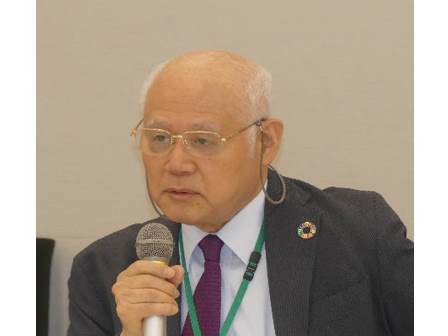
Ambassador Tadanori INOMATA made two points. First it should be recognized that the reforms by Secretary General Guterres are broad and cover three areas: peace & security, human rights and development, and are different from the traditional compilation of sector-specific measures. It systematically embodies sustaining peace in line with the twin resolutions on review of the United Nations peacebuilding architecture adopted by the United Nations General Assembly and the Security Council in April 2016. In addition, the Secretary-General advocates a preventive initiative that addresses the root cause of conflict. From this point of view, he advocates a new collective security that focuses on non-traditional security by ensuring the security of people and correcting disparities between countries and within the country.
Secondly, a wide series of institutional reforms as well as administrative reforms are presented. These include: (i) Cross-sectoral institutional reform in the political security field and economic and social field, (ii) Security and development and humanitarian nexus, (iv) Partnership and coordination between peacekeeping activities and related development activities within the UNDG, and (v) Financing of sustaining peace and administrative and financial reform of the UN system. It is proposed that our Sub-Committee would discuss these reforms in depth at the next session.
Concerning the Security Council Reform and Japan, Ambassador Inomata made five points. First, that the above resolutions adopted in the December 2006 and the Statement Security Council Chairman, S / PRST2018 / 20, already defined clear relationship and coordination modalities among the UN system organizations involved in peace operations which are centered around the Security Council and the Peacebuilding Commission. For the time being, we should monitor the operation of such modalities.
Secondly, he said that to promote sustaining peace on the ground, it was necessary to increase the voice of Africa in the decision-making at the United Nations, as conflicts frequently occur in Africa. At TICAD 7 in August this year, Prime Minister Abe advocated Proactive Contribution to Peace. Regarding the Security Council reform, Japan joined in the adoption of “the TICAD Declaration (2.4) which support the idea to allow for Africa to have “at least two permanent seats with all rights and privileges as a permanent member, including right to veto and five non-permanent seats”. Thirdly, in order to achieve sustaining peace, stable and sustainable finances and human resources from member countries are necessary. However, the United Nations system stands on the brink of dysfunction because of US’s neglect of multilateralism and non-payment of assessed contributions to international organizations. Fourthly, Japan’s scale of assessment in the UN budgets is still high, but now it is third after China. Its voluntary contributions and ODA support are also lagging major Western countries such as Germany, France and the UK due to perceived need for fiscal reconstruction. (The Japanese Self-Defense Forces dispatched to the PKO missions came to zero after the withdrawal from the United Nations Mission in the Republic of South Sudan (UNMISS) in 2017). Fifthly, the urgent issue for Japan is how to increase its contributions to innovative support for strengthening financial and capacity development necessary for sustaining peace in developing countries in the future.
Concerning Prof. Popovski’s proposal, Mr. Yoshikawa found it difficult to foresee that a country vested with the veto power as a result of the Second World War may give it up unless our world happens to face similarly serious and gigantic crises. Such a tragic situation may not be limited to a war. How does Prof. Popovski think of the possible international dynamism or mechanism which may lead any of the big five countries with the veto power to the decision to renounce it?
On Prof. Popovski`s proposal to establish “Chamber of civil society” as one of the advisory mechanisms for the General Assembly, Mr. Sumihiro Kuyama thought it more appropriate to establish, instead, Chamber of Peoples, or Peoples Assembly, by duly considering the spirit envisioned in the “first seven words” of the UN Charter. He was in favor of his proposal to upgrade Peacebuilding Commission into Peacebuilding Council in order to cope with conflict preventive operations, of which enhancement has been advocated repeatedly by SG Guterres as the priority for the UN.
Mr. Takahiro SHINYO announced that the next meeting will take place on January 21, 2020 from 14:00 to 17:00 hours.
- H.E. Mr. Masaharu Nakagawa, Member of the House of Representatives, The Diet of Japan and former Minister of Education, Culture, Sports, Science and Technology
- H.E. Mr. Masahiko Shibayama, Member of the House of Representatives, The Diet of Japan and former Minister of Education, Culture, Sports, Science and Technology
- H.E. Mr. Akira Sato, Member of the House of Representatives and former Senior Vice Minister of Defense
- Sukehiro Hasegawa, Chair, Japan Commission on Global Governance and former Special Representative of the Secretary-General of the United Nations
- Mr. Takahiro Shinyo, Chair of the Sub-Committee on UN Report and former Ambassador to the United Nations and Germany
- Vesselin Popovski Professor and Vice Dean, Jindal Global Law School, O.P. Jindal Global University, Haryana, India
- Mr. Yasuhiro Ueki, Professor of Sophia University and former Spokesman of the United Nations
- Ambassador Tadanori Inomata, Strategic Advisor of Nagasaki University’s Center for International Collaborative Research, Member of ACABQ and JIU of the United Nations and former Ambassador of Japan to Costa Rica
- Mr. Sumihiro Kuyama, former Chairman of the Joint Inspection United of the United Naitons and member of the Board of Directors of the UN Association of Japan
- Mr. Ken Inoue, Senior Advisor of JICA on Democratic Governance and former Director of UNMIT Director on Democratic Governance
- Ms. Akiko Taguchi, Director of the International Labour Organization in Japan
- Mr. Yoshinobu Yonekawa, Former Senior Officer of the Department of Economic and Social Affairs of the United Nations, New York
- Mr. Junichiro Mori, Executive Director, Alliance Forum
- Mr. Takaaki Mizuno, Professor, Kanda University of International Studies
- Ms. Sayo Oyagi, Deputy Director, Policy Planning Division of the Foreign Policy Bureau, Ministry of Foreign Affairs
- Mr. Oyamu Shiohama, Secretary-General, Secretariat of the World Federalist Movement of Japan
- Mr. Masakuni Tanimoto, Secretary-General, Japan Commission of Global Governance
- Ms. Fujiko Amano, Chief for Conference Proceedings, Global Peacebuilding Association of Japan
- Ms. Amishi Agrawal, Senior Student, University of Tokyo
- Maja Liechti, Student, University of Tokyo
- Hikari Ono, Intern, World Federalist Movement Youth Group